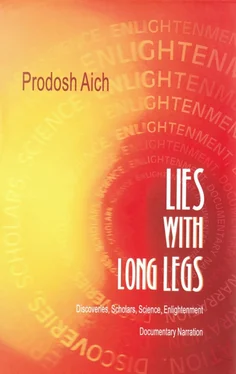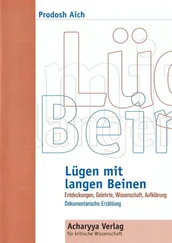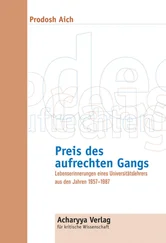The methods adopted in this research have been described and substantiated in the Prologue. We do apologise for any obstacle or abridgement which might be found in the report on our journey to the primary sources. In the course of each of the necessary steps we have been startled by the fact that our seemingly simple questions have led to countless corollary questions. Besides, the source-texts are not free from contradictions. We had to read many such texts more than twice. We have marked many of those obstacles by signs. These are exclamation marks, interrogation marks and short comments put in brackets. Many words we have put in inverted commas. These are expressions, terms on which we had to reflect more than twice. This is why we apologise..
We have often wondered why the questions in this book have not been raised earlier by others or by us. Had we been tied up as an integrated part in the establishment called “University” we might not have accomplished this search and research. As we have already indicated, we don’t have to undergo “exams” anymore. And we are beyond the strain of ‘ publish or pack up’.
Dr. Gisela Aich has kindly read the manuscript critically at all phases.
Prodosh Aich
Prologue: We are, what we know
We gain knowledge from what knowledgeable people tell us. We readily accept a story if it is consistent, if it does not create a feeling of unease and if it doesn’t contradict our experience and our knowledge stored so far. We save it as an addition, and we increase our knowledge a little. We are inclined to accept stories from afar innocently, even if an inner assessment is due; assuming that our memories are functioning well. We just don’t have the time to look out for “sublime” contradictions. We are accustomed to this process. Mostly, we don’t care about who the narrator is, how he got the story, how he earns his living, who is harmed by the story, who gains and so forth.
We wanted to know about “Aryans”, “Indogermans” and “Indoeuropeans”. And we find many stories. Who doesn’t know them? Most learned people know these stories found in “references”, in “standard books of history” and more detailed in specialised books: The “Aryans”, the grazing nomads, lived in the steppes between the Caspian Sea and the contemporary Chinese western boundary; in “pre-historic” age. How does one define “pre-historic”?
Well! Those grazing nomads had domesticated horses and cows for use in their daily life as the first people in history around 6000 years ago. They discovered copper, iron and other precious metals. They invented bronze and steel. They were well to do. Their population increased. They expanded their “Lebensraum”. Whose living space did they invade? We won’t know. Who is to tell us? Is it important to know? Did they perhaps occupy Lebensraum” of animals only? An earlier “age of discoveries” eventually? Nothing is known yet. If our type of questions were as important, we would have found answers in the end. Are we perhaps on a wrong track?
Some of these grazing nomadic people with cows, horses, copper, iron, bronze and steel emigrated. To the west and to the south. The circumstances of this expansion of “Lebensraum” are either veiled in “early or pre-history” or even buried. We can imagine why they didn’t go into the inhospitable northern regions, into the cold, if some of them really did emigrate. But why did they not expand their “Lebensraum” also eastwards? No one tells us. No one has asked as yet.
But there seems to be no doubt about “expansion” of “Lebensraum” of these people. Naturally, as “cultured” people they had a common language. So the language wandered with them too. Some of these “Aryan wanderers” reached Northwest India. The Hindukush was the only pass through the Himalayan massif. How could these nomads from the Turkmenian steppe find this single pass? Wandering in from an area thousands of kilometres away? Should we be detained by such “useless” questions? Isn’t it enough that that they did find the pass? Otherwise they would not have arrived in India. Did they really arrive? Anyway. They were tall, strong, fair skinned, fair haired, blue or grey-eyed, and obviously “dynamic” as well. Otherwise they could not have made this long journey.
They settled down in Northwest India. They brought their language with them. Quite logically. This was Sanskrit. But without scripts. They invented the device of writing in India only. Had they brought a script with them, we would have found it in their original native land. However, the Sanskrit script was found nowhere. Therefore it is deduced that the need to store their knowledge for future generations in writing was first felt in Northwest India. And they accomplished the job nicely. How long does it usually take for a cultural community to devise a script? “Philologists” or “Comparative Linguists” do not tell us anything about that. We must be content with the fact that “Aryans” from central Asia moving around discovered the Hindukush pass, drove out the inhabitants from this hospitable Northwest India to the South, settled down, acquired new knowledge, invented a script for writing and produced a huge amount of highly sophisticated literature. We naturally won’t know where the initial inhabitants of the North forced the inhabitants of the South to go after they had been forced out from the North. Is it important to know all this?
So far, so good. In the most ancient parts of this literature these “New Indians” called themselves “Aryans”; so we are told. We shall yet have to identify the “historian” who told us these stories for the first time. No one can tell us, however, why should only those grazing Nomads in India call themselves “Aryans” but not their brothers, sisters and cousins elsewhere in Western Europe and/or the ones who remained at home? Why not? Shouldn’t we know?
Let us take it as a fact for the time being. We are assured that the “New Indians” called themselves “Aryans” and the language they brought with them was “Sanskrit”. Up to now Sanskrit has been universally regarded as the best arranged language. As Sanskrit has been found nowhere else, it is logically assumed that the nomadic “Aryans” in central Asia must have spoken a simpler version of Sanskrit. So we are told. This simple form, the early Sanskrit, Sanskrit in its childhood so to say, is called “Protosanskrit”. Well and good. Those ‘Aryans” wandering towards the West also had to take along the same “Protosanskrit” Doesn’t it sound absolutely logical? Well, it didn’t keep its initial form. The language and culture of the “Aryans” did change with time and through encounters with other languages and cultures in different continents. But the “kinship” naturally remained in regard to language and other things. So we are told. A convincing story.
It is supposed to be sufficiently established that there is a close kinship between Sanskrit, the language of the Northwest-Indian “Aryans” on the one hand and Greek, Latin, Germanic and Celtic languages on the other hand. The family of the “Indoeuropeans”. So to speak. And who has discovered and established this kinship? Not those “Aryans” who passed through the Hindukush and created the world-wide known literature like Vedas, Upanishads, Puranas, Sutras, and so forth and allegedly called themselves “Aryans” in their literature. No! None of them, not in any of their writings, not even once has it been indicated that at some period in central Asia their “Lebensraum” became so congested that a lot of their brothers, sisters, cousins set out on a search for new space to live and emigrated in the end. No! The “Sanskrit-Aryans” did not remember anything else, so it is told, than that they were “Aryans”. An absolute “black out” on all other things. The remote cousins and relatives belonging to the “Abendland” (Occident) claimed the kinship rather late, only while they were engaged in robbing and killing in the “Morgenland” (Orient). They were robbing India indiscriminately; carrying away whatever was not riveted and nailed, occupying the country for enduring exploitation. But they blessed also their remote cousins and relatives first with “language kinship” and then the “Linguistics”. This branch of “science” has also invented the term “language family”, but only in the 19 thcentury AD, to be more exact, between the end of the 18 thand the beginning of the 20 thcentury.
Читать дальше












